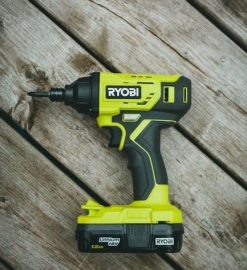colorado commercial driver’s manual
Welcome to the Colorado Commercial Drivers Manual‚ your essential guide to obtaining a Commercial Driver’s License (CDL). This manual provides critical information on Colorado’s CDL program‚ safety practices‚ and legal requirements to ensure compliant and safe commercial driving.
1.1 Purpose and Importance of the Manual
The Colorado Commercial Drivers Manual serves as a comprehensive guide for individuals seeking to obtain or renew a Commercial Driver’s License (CDL). Its purpose is to provide detailed information on state and federal regulations‚ safety practices‚ and legal requirements for commercial driving. The manual is essential for preparing for the written and skills tests‚ ensuring compliance with traffic laws‚ and promoting safe driving habits. Regular updates keep drivers informed about the latest rules and standards.
1.2 Overview of the Colorado CDL Program
The Colorado CDL Program is designed to ensure commercial drivers meet federal and state safety standards. It outlines the requirements for obtaining and maintaining a Commercial Driver’s License‚ including classifications‚ endorsements‚ and medical certifications. The program emphasizes road safety through rigorous testing and training. By following the manual‚ drivers can navigate the licensing process efficiently and stay compliant with Colorado’s commercial driving regulations.
Obtaining the Colorado CDL Manual
The Colorado CDL Manual is available online in PDF format‚ accessible through the Colorado Department of Revenue website. Regular updates ensure the latest information.
2.1 Where to Find the Manual Online
The Colorado CDL Manual can be easily accessed online through the Colorado Department of Revenue website. Visit their official page and navigate to the CDL section to download the latest version. The manual is available in PDF format‚ allowing users to view‚ print‚ or save it for convenient studying. Regular updates ensure the manual reflects current laws and regulations.
2;2 Accessing the PDF Version
The Colorado CDL Manual is available as a free PDF download from the Colorado Department of Revenue website. Simply visit the official site‚ locate the CDL section‚ and click on the provided link to access the manual. The PDF version is fully searchable‚ making it easy to navigate and study key topics. It can also be printed or saved for offline use‚ ensuring convenient access to essential information.
2.3 Updating to the Latest Edition
To ensure compliance with current regulations‚ it’s crucial to use the most recent version of the Colorado CDL Manual. The Colorado DMV updates the manual annually‚ incorporating changes in traffic laws‚ safety guidelines‚ and licensing requirements. Visit the official Colorado DMV website to download the latest PDF version‚ which is updated automatically each year. Regularly checking for updates ensures you have the most accurate and relevant information for your CDL needs.
Eligibility Requirements for a Colorado CDL
To qualify for a Colorado CDL‚ applicants must meet specific criteria‚ including age‚ residency‚ medical certification‚ and background checks. These requirements ensure safe and compliant commercial driving practices.
3.1 Age and Residency Requirements
To apply for a Colorado CDL‚ you must be at least 21 years old for interstate commerce and 18 years old for intrastate operations. Additionally‚ you must be a Colorado resident and provide proof of residency‚ such as a valid state driver’s license or utility bills. Meeting these age and residency requirements is the first step toward obtaining your commercial driver’s license in Colorado.
3.2 Medical Certification Requirements
Commercial drivers must meet strict medical standards to ensure road safety. A valid Medical Examiner’s Certificate is required‚ issued by a Federal Motor Carrier Safety Administration (FMCSA)-certified professional. The exam assesses vision‚ hearing‚ blood pressure‚ and physical condition to qualify for a CDL. Certain medical conditions‚ such as uncontrolled diabetes or heart issues‚ may disqualify applicants. Drivers must maintain a current medical card and submit it to the Colorado DMV to maintain their CDL privileges.
3.4 Disqualifying Offenses
Certain offenses can disqualify you from obtaining or maintaining a CDL in Colorado. These include serious traffic violations like reckless driving‚ DUI‚ or leaving the scene of an accident. Major offenses such as manslaughter or using a vehicle in a felony also result in disqualification. Additionally‚ violations like driving with a suspended license or causing a fatality due to reckless driving can lead to CDL revocation. The disqualification period varies based on the offense severity and whether it’s a first or repeat offense.
CDL Classifications and Endorsements
This section outlines the different CDL classifications (Class A‚ B‚ C) and endorsements (H‚ N‚ P‚ S‚ T) required for operating specific commercial vehicles in Colorado.
4.1 Class A‚ B‚ and C Licenses
Class A licenses cover combination vehicles with a trailer‚ requiring a Gross Combination Weight Rating (GCWR) over 26‚000 lbs. Class B licenses are for heavy straight trucks like dump trucks or buses‚ with a GVWR over 26‚000 lbs. Class C licenses apply to smaller vehicles‚ including passenger vehicles and Hazmat transport‚ often requiring specific endorsements. Understanding these classifications is essential for operating commercial vehicles safely and legally in Colorado.
4.2 Endorsements (H‚ N‚ P‚ S‚ T)
Endorsements expand a CDL holder’s privileges. The H endorsement allows transport of hazardous materials‚ requiring a background check. N is for tank vehicles‚ P for passenger vehicles‚ S for school buses‚ and T for double/triple trailers. Each endorsement requires specific testing and‚ in some cases‚ additional certifications. These special designations ensure drivers are qualified for specific cargo or vehicle types‚ enhancing safety and compliance on Colorado roads.
4.3 Restrictions on CDLs
CDLs may include restrictions limiting driving privileges. Common restrictions include the “E” endorsement for automatic transmissions or “K” for intrastate-only operations. Medical conditions or violations can lead to temporary or permanent restrictions. Drivers must comply with all listed restrictions to maintain legal CDL status. Violating these can result in penalties or license suspension‚ ensuring safety and regulatory adherence on Colorado roads.
The Written Test and Study Materials
The Colorado CDL manual provides essential study materials for the written test‚ covering critical topics like road safety‚ regulations‚ and vehicle operations to ensure preparedness.
5.1 Preparing for the Written Exam
Preparing for the Colorado CDL written exam requires thorough study of the manual. Focus on understanding traffic laws‚ road signs‚ and safe driving practices. Utilize practice tests to assess your knowledge and identify areas needing improvement. The manual covers essential topics like vehicle inspections‚ hazardous materials‚ and emergency procedures. Dedicate time to review each section‚ ensuring mastery of the material before attempting the exam. Consistent practice ensures confidence and readiness for the test.
5.2 Key Topics Covered in the Manual
The Colorado Commercial Drivers Manual covers essential topics for safe and legal commercial driving. It includes CDL classifications‚ endorsements‚ and restrictions. The manual details Colorado traffic laws‚ road signs‚ and right-of-way rules. Safe driving practices‚ such as defensive driving and managing driver fatigue‚ are emphasized. Emergency procedures‚ pre-trip inspections‚ and hazardous material transport laws are also included; These topics ensure drivers are well-prepared to operate commercial vehicles responsibly and in compliance with state regulations.
5.3 Practice Tests and Study Guides
The Colorado Commercial Drivers Manual includes practice tests and study guides to help prepare for the CDL exam. These resources cover key topics such as road signs‚ traffic laws‚ and safe driving practices. The practice tests simulate real exam questions‚ ensuring familiarity with the format and content. Study guides provide in-depth explanations of complex topics‚ while audio versions of the manual offer flexible learning options for all learners.
Safe Driving Practices for Commercial Drivers
Master defensive driving techniques‚ manage fatigue‚ and understand emergency procedures to ensure safe commercial driving practices in Colorado‚ as detailed in the manual.
6.1 Defensive Driving Techniques
Defensive driving techniques are crucial for commercial drivers to minimize risks on the road. This includes anticipating hazards‚ maintaining safe following distances‚ and adjusting speed according to road conditions. Commercial drivers should stay alert‚ avoid distractions‚ and be aware of their surroundings at all times. By adopting a proactive approach‚ drivers can reduce the likelihood of accidents and ensure safer operations. Professionalism and adherence to traffic laws are key components of defensive driving practices in Colorado.
6.2 Managing Driver Fatigue
Managing driver fatigue is essential for commercial drivers to ensure safety on the road. The manual emphasizes the importance of adequate rest‚ adhering to hours-of-service regulations‚ and maintaining a healthy lifestyle. Drivers should avoid driving during peak sleepiness hours‚ take regular breaks‚ and stay hydrated. Proper nutrition and exercise also play a role in preventing fatigue. Recognizing signs of tiredness‚ such as difficulty concentrating‚ is crucial to pulling over and resting when needed. Fatigue management is a critical component of safe commercial driving practices in Colorado.
6.3 Emergency Procedures
Emergency procedures are crucial for commercial drivers to handle unexpected situations safely. The manual outlines steps for securing the vehicle‚ using hazard lights‚ and staying visible. Drivers should know how to respond to fires‚ breakdowns‚ and medical emergencies. Proper use of fire extinguishers and first aid kits is emphasized. Staying calm‚ assessing the situation‚ and following established protocols are key. Regular training and familiarity with emergency equipment ensure preparedness‚ minimizing risks and protecting both the driver and others on the road.
Colorado Traffic Laws and Regulations
The Colorado Commercial Drivers Manual outlines essential traffic laws and regulations‚ including speed limits‚ traffic signs‚ and right-of-way rules. It emphasizes safe driving practices and compliance with state-specific regulations to ensure road safety for all drivers.
7.1 Speed Limits and Traffic Signs
The Colorado Commercial Drivers Manual outlines specific speed limits and traffic signs to ensure safe and efficient travel. Maximum speed limits on highways are typically 70-75 mph‚ while urban areas are 30-55 mph. The manual emphasizes recognizing and obeying traffic signs‚ including warning signs‚ guide signs‚ and construction zone signs. Understanding these is crucial for compliance and safety on Colorado roads.
7.2 Right-of-Way Rules
The Colorado Commercial Drivers Manual emphasizes critical right-of-way rules to ensure safe interactions on the road. Drivers must yield to pedestrians‚ emergency vehicles‚ and other traffic when required. At four-way stops‚ the vehicle on the right has the right-of-way. When turning left‚ drivers must always yield to oncoming traffic. Understanding these rules is essential for preventing accidents and complying with Colorado traffic laws.
7.3 Hazardous Material Transport Laws
Transporting hazardous materials in Colorado requires strict adherence to state and federal regulations. Drivers must obtain proper certifications‚ follow designated routes‚ and ensure vehicles meet safety standards. Regular inspections are mandatory to prevent accidents. Violations can result in severe penalties‚ including fines and license suspension. Compliance with these laws is crucial for public safety and maintaining CDL privileges.
Vehicle Inspection and Maintenance
Regular vehicle inspections and proper maintenance are crucial for ensuring safety and compliance with Colorado CDL regulations. Pre-trip and post-trip checks help identify potential issues early.
8.1 Pre-Trip and Post-Trip Inspections
Pre-trip inspections ensure your vehicle is roadworthy‚ involving checks of brakes‚ tires‚ lights‚ and fluid levels. Post-trip inspections verify all systems functioned properly during operation. Both are critical for safety and compliance with Colorado regulations‚ helping prevent breakdowns and accidents; Regular documentation of these inspections is required to maintain CDL compliance and adhere to federal and state transportation standards.
8.2 Maintenance Requirements
Regular maintenance is essential to ensure the safety and efficiency of commercial vehicles. Colorado requires adherence to a maintenance schedule that includes routine checks of brakes‚ tires‚ engines‚ and suspension systems. Proper documentation of maintenance activities must be kept‚ and vehicles must meet federal and state safety standards. Neglecting maintenance can lead to mechanical failures‚ accidents‚ and penalties‚ emphasizing the importance of proactive upkeep for CDL holders.
8.3 Reporting Vehicle Issues
Commercial drivers must report any vehicle defects or safety concerns immediately to their employer or designated authority. Issues such as malfunctioning brakes‚ worn tires‚ or electrical problems should be documented and addressed promptly. Colorado regulations require drivers to ensure their vehicle is roadworthy before operation. Failing to report issues can result in violations‚ fines‚ or even accidents‚ making it crucial for drivers to uphold their responsibility in maintaining safe operating conditions.
DUI Laws and Penalties for CDL Holders
Colorado enforces strict DUI laws for CDL holders‚ with a lower BAC threshold of 0.04%. Penalties include license suspension‚ fines‚ and potential disqualification from CDL privileges.
9.1 Blood Alcohol Content (BAC) Limits
For CDL holders in Colorado‚ the legal blood alcohol content (BAC) limit is stricter than for non-commercial drivers‚ set at 0.04%. This lower threshold reflects the heightened safety expectations for commercial vehicle operators. Driving with a BAC of 0.04% or higher can result in severe penalties‚ including license suspension and potential disqualification from CDL privileges. This ensures public safety and maintains professional driving standards.
9.2 Consequences of a DUI Conviction
A DUI conviction for CDL holders in Colorado leads to severe penalties‚ including mandatory disqualification of commercial driving privileges for at least one year for a first offense and permanently for repeat offenses. Additional consequences may include fines‚ potential jail time‚ and increased insurance rates. A DUI conviction remains on your record indefinitely‚ significantly impacting your career as a commercial driver and requiring completion of a state-approved alcohol treatment program before reinstatement.
9.3 Impact on CDL Privileges
A DUI conviction significantly impacts your CDL privileges‚ leading to mandatory disqualification for at least one year for a first offense and permanently for a second offense. Even a single offense results in the loss of commercial driving privileges‚ affecting your livelihood. Additionally‚ a blood alcohol content (BAC) of 0.04% or higher while operating a commercial vehicle triggers an immediate 24-hour suspension of driving privileges. Repeat offenses may require completing a state-approved rehabilitation program before reinstatement.
License Application and Renewal Process
Applying for a Colorado CDL involves submitting an application‚ providing required documents‚ and paying fees. Renewal requires periodic updates and compliance with state regulations to maintain privileges.
10.1 Applying for a CDL
To apply for a Colorado CDL‚ submit a completed application‚ provide required identity and residency documents‚ and pass a vision test. Pay the applicable fees and successfully complete the written and skills tests. Ensure all documentation meets state requirements for the specific CDL class and endorsements. Consult the Colorado CDL manual for detailed instructions and updated procedures to streamline the application process.
10.2 Renewal Requirements
Renewing your Colorado CDL involves submitting a renewal application‚ paying the required fees‚ and providing updated documentation. Ensure your medical certification is current‚ especially if you hold endorsements like H or S. Check the Colorado CDL manual for specific renewal procedures and deadlines. Additional requirements may apply based on your CDL class and endorsements. Stay informed about any changes in regulations to maintain compliance and avoid delays in the renewal process.
10.3 Fees and Payment Methods
The cost of renewing or obtaining a Colorado CDL varies by class and endorsements. Fees for Class A‚ B‚ and C licenses are specified in the manual. Additional fees may apply for endorsements such as H (hazardous materials) or S (school buses). Payments can be made online‚ by mail‚ or in person using credit cards‚ checks‚ or money orders. Ensure to verify current fees and payment options before submitting your application.



Leave a Reply
You must be logged in to post a comment.